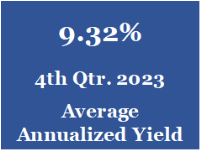TO LISTEN INSTEAD OF READING THIS BLOG, CLICK ON THE ICON BELOW![]()
Real estate investments have long been hailed for resilience, especially when navigating through the unpredictable waters of economic cycles. This blog post will explore the historical trends highlighting real estate investments’ enduring value and long-term safety, even amidst economic fluctuations.
Real Estate’s Steadfastness
Real estate has long been a steadfast player in the investment world, demonstrating resilience across various economic periods, including recessions and booms. Its reliability as an asset class was particularly evident during the Great Depression, where it outperformed other markets, and post-World War II, where it played a key role in the global economy’s recovery and growth. Even in the face of the 2008 financial crisis, real estate eventually rebounded, reinforcing its status as a solid investment, often outshining other asset classes in growth and stability.
The tangible nature of real estate sets it apart, offering a sense of security that is especially valued during economic uncertainties. Its role in diversification is also crucial, often showing a low correlation with other major asset classes and thus reducing overall portfolio risk. This characteristic provides a stabilizing effect in tumultuous economic times.
Real estate’s resilience is further bolstered by its ability to evolve with societal changes, technological advancements, and demographic shifts. This adaptability ensures its continued relevance and opens doors to new growth and development opportunities. In the current complex economic landscape, real estate remains a vital component of diversified investment portfolios, known for delivering stable, long-term returns.
Moreover, in an era where environmental and social governance is gaining importance, real estate presents sustainable and responsible investing opportunities. This aligns with the increasing preference for conscious investment practices, further cementing real estate’s role in modern investment portfolios.
Conclusion
Historically, real estate has demonstrated remarkable resilience through various economic cycles, underscoring its enduring value and the long-term safety it offers investors. Its ability to withstand economic ups and downs makes it an essential component of any well-considered investment strategy, particularly for those looking to mitigate risk while ensuring steady growth. Fidelis Private Fund is one of those investments where the Fund invests in real estate through secured loans, providing the security investors strive for.
 Fidelis Private Fund annualized yield paid to Limited Partners for the fourth quarter of 2023 was 9.32%. Click here for a summary of Fidelis’s annualized yield since inception.
Fidelis Private Fund annualized yield paid to Limited Partners for the fourth quarter of 2023 was 9.32%. Click here for a summary of Fidelis’s annualized yield since inception.


